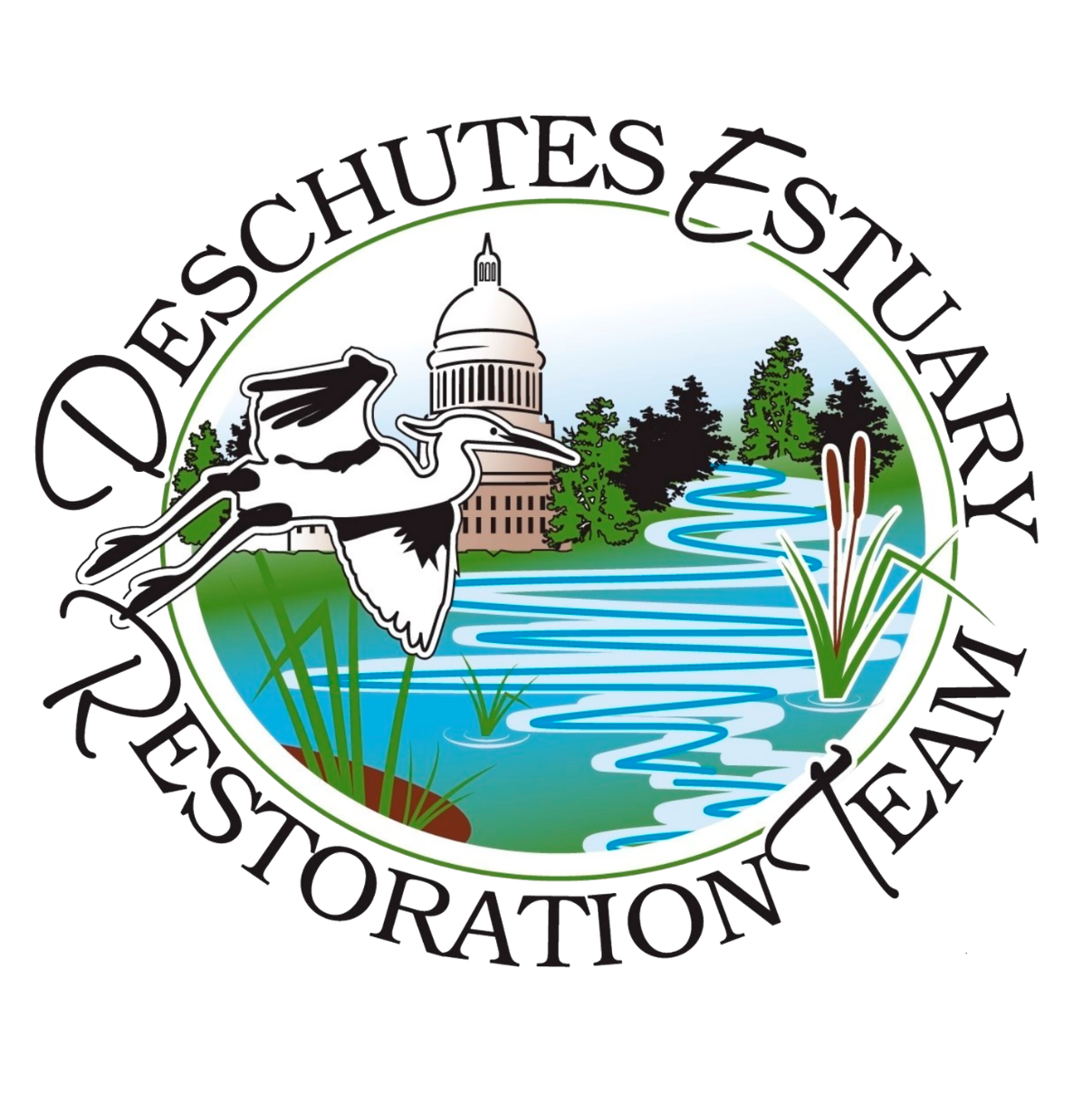“Water is our most precious and interconnected natural resource. It sustains all ecosystems, communities, and economies from local watersheds to the seas. It is vital to sustaining our health, safety, and the environments in which we live and work. Simply put, water is life.”
-Alexandra Cousteau
Across Washington State, Watershed Councils work to balance water related environmental and economic pressures. The Deschutes Watershed has never had a working Watershed Council to track all of the water issues that arise around the Deschutes river and its tributaries. As Watershed population grows, more water will be used, but water availability is not guaranteed. The Deschutes River and Budd Inlet do not meet Clean Water Act standards limiting water availability even more. The need to connect the dots between quantity and quality has become seriously apparent.
DERT has been working with a group of folks from local jurisdictions and the public to put together the Deschutes Watershed Council. The Council idea was proposed during a planning process to determine available water resources facilitated by the Department of Ecology as required by Washington law. The proposal to form the Council was unanimously supported by members of the planning committee.
The group is asking for start up funds from the Washington State legislature with help from Rep. Jessica Bateman and staff. The proposal would house the Council staff at Thurston County. Each member of the Watershed Council would also devote financial, i.e., staffing resources and policy expertise to its work.
The purpose of the Council is to create a broadly-based watershed group to develop and implement a plan and process for following science-based recommendations included in the Deschutes Watershed Total Maximum Daily Load (TMDL) and Watershed Restoration Enhancement Committee (WREC) Plan.
This Deschutes Watershed Council will be a collaborative partnership. It will work to implement recommendations arising from plans and studies to improve water quantity and water quality as well as identify and implement water management solutions on a regional scale. The Council will increase regional self-reliance, help to reduce conflicts and manage water to concurrently achieve social, environmental, and economic objectives. This approach could deliver a higher value for watershed investments by considering all partners interests and providing multiple benefits. Such examples might include:
- Restoration of streamflow
- Improved water quality
- Permit-exempt mitigation
- Protection of senior water right, including Tribal water rights
- Flood management
- Restored and enhanced ecosystems for fish and wildlife habitat
- Reliability of surface and groundwater supplies and working across jurisdictional boundaries
A Deschutes Watershed Council would build on successful models in other watersheds and use science-based tools with demonstrated effectiveness from those watersheds. The group could incorporate adaptive management techniques to address such future impacts as climate change. It would stress collaborative solutions that reduce conflict and avoid litigation.
The time for a Deschutes Watershed Council is now – and DERT is committed to working with others to make it happen.
Please contact your Legislators to offer support for the formation of the Deschutes Watershed Council.
Legislative District 22 Representative Jessica Bateman can be reached at 360-786-7992.
Legislative District 22 Representative Beth Doglio can be reached at 360-789-7940.
Thank you!!
-DERT Board of Directors
For questions or more information, please email DERT at olydert@gmail.com.
We’ll continue to include Watershed Council updates in our future newsletters. Keep an eye out for April’s newsletter in the first week of the month!


